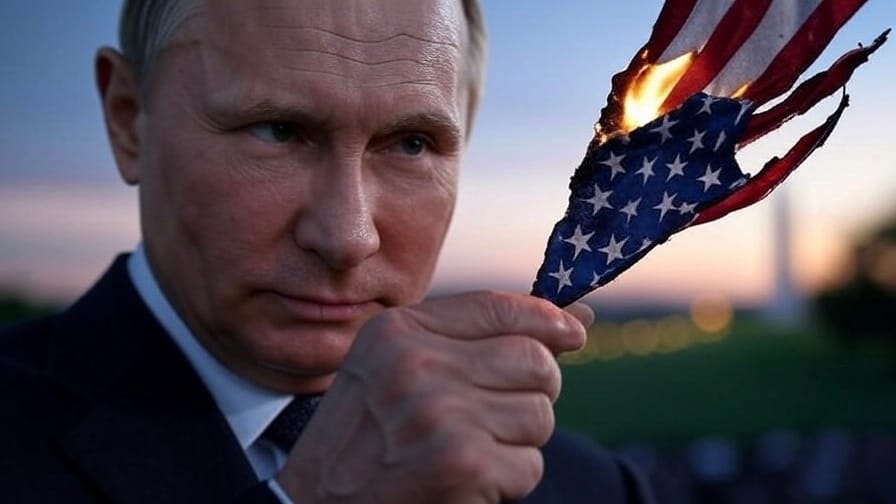Weaponizing Disillusionment: How Russia Turns American Culture-War Refugees into Front-Line Recruits

Russia’s promise of “traditional values”—so alluring in online culture-war debates—has turned deadly real for one American family. Earlier this summer Derek Huffman, a middle-aged welder from Texas, signed a one-year contract with the Russian Ministry of Defense after the Kremlin dangled expedited citizenship for foreign volunteers. Huffman, who moved his wife and three young daughters to Moscow’s outskirts in 2024, was assured he would stay behind the lines repairing equipment. Within weeks he was rerouted toward Ukraine’s front, his wife begging for help in tear-streaked YouTube videos.
A Texan on the Donbas Highway
The Huffmans were not fringe extremists. They were ordinary conservatives nursing cultural grievances—exactly the demographic Russian propagandists have spent years cultivating. Their family vlog, “Huffman Time,” chronicled the move to Russia’s planned “American Village,” a rural enclave pitched by U.S.-born broadcaster Tim Kirby as a haven from “woke” America. When Moscow announced that military service could slash the multi-year wait for residency, Huffman did what many immigrants have done the world over: he joined the host nation’s army. The difference is that this army is fighting an aggressive war and is under sanctions for war crimes.
From Culture War to Hybrid War
Russia’s outreach to disaffected Westerners has always been more than soft-power tourism. It is a textbook hybrid-warfare tactic—blurring the line between psychological operations and kinetic force. By converting culture-war frustrations into enlistments, the Kremlin turns ideological sympathizers into literal force multipliers. American-born soldiers add a propaganda bonus: Moscow can claim that even U.S. citizens see its war as righteous.
The strategy mirrors earlier efforts that weaponized migration and social media to destabilize rivals: think of the “patriotic hacker” narratives during the 2016 U.S. election, or the promotion of European far-right parties through state-backed outlets. Recruiting foreigners for combat simply completes the arc—from memes to mortars.
The Militarization of Migration
Huffman’s predicament exposes a policy time-bomb. If Russia can entice Western migrants with citizenship perks, other authoritarian states will copy the model. The scheme exploits the very liberal principle that anyone can become a citizen—then twists it into an engine for overseas aggression. Veterans understand how fragile the civil-military boundary becomes once foreign volunteers bypass normal vetting. Progressive watchdogs should press Congress for legislation barring dual-citizen combatants of sanctioned armies from re-entering the United States, and for social-media platforms to label content that serves as foreign military recruitment.
Why This Matters to the Left—and to Veterans
As a veteran, I know the seduction of camaraderie and clear-cut missions. Pair that with right-wing culture-war messaging and you have a recruitment funnel tailor-made for alienated Americans. Yet it is the left that has long warned about the privatization of force, the outsourcing of patriotism, and the global rise of authoritarian nationalism. Huffman’s saga is not just a human-interest headline; it is a signal flare illuminating how culture-war grievances can be repackaged into foreign policy assets for autocrats.
Progressives must therefore connect the dots:
- Domestic disinformation ecosystems are not merely “polarizing”; they are preprocessing centers for foreign influence.
- Anti-democratic narratives do not stay confined to Facebook threads; they can end up placing U.S. citizens on a tank outside Kharkiv.
What Comes Next
Huffman’s wife says her husband now regrets signing up, but contracts sealed with the Russian military are rarely breakable. Even if he survives and secures citizenship, his family will have to choose between life in a pariah state or a return to a United States that may consider him a violator of sanctions.
The tragedy could have been prevented by earlier, stronger action against Russian influence operations targeting vulnerable veterans and culture-war refugees. It still can serve as a wake-up call: hybrid warfare is not theoretical. It is the story of a Texan welder whose search for belonging was weaponized by the Kremlin—and it will be the story of many more unless we treat disinformation not as a partisan annoyance but as a national-security threat.
Euromaidan Press, “Texas man joins Russian army to ‘earn respect,’ gets lied to as he is sent to front line,” 16 Jul 2025
United24 Media, YouTube compilation of DeAnna Huffman videos, 17 Jul 2025
Kyiv Post, “American Dream Village in Russia turns into military recruiting ground,” 15 Jul 2025
